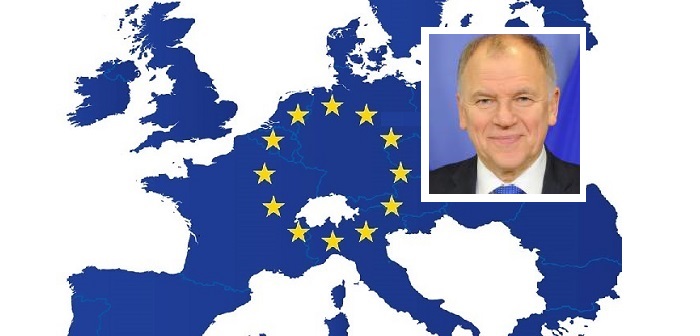Europe’s pig farmers have been told to expect a “substantial increase” in the funding envelope which is provided to finance the EU’s African Swine Fever (ASF) programmes in 2017.
This “promise” was made in Poland today by the European Commissioner for Health and Food Safety, Vytenis Andriukaitis, when he addressed farm ministers from several EU countries, plus invited representatives from Moldova, the Russian Federation and Ukraine.
Noting that the EU’s ASF budget for 2016 totalled €7 million (£6.3m), the commissioner told the gathering to expect a substantial increase next year.
Praising the Baltic States and Poland for continuing to do an excellent job of containing the disease, Mr Andriukaitis said the necessary EU support to those member states will also be reinforced in order to enhance the benefits of their successful approach.
“Of course, the situation of ASF in neighbouring countries, notably Ukraine and the Russian Federation, and now also Moldova, remains a concern,” he said, adding that the situation in these countries increases the risk of the disease spreading to other countries not yet affected, especially Finland, Hungary, Romania and Slovakia.
“The EU is already providing support to non-EU countries (for example: training, sending of experts and laboratory reagents) and is willing to increase this effort to help eradicate ASF from the region as a whole.”
Despite all this, the commissioner warned delegates that “significant challenges” lie ahead, most crucially tackling the need to better engage small non-commercial farmers in the fight against ASF.
“All farmers need to be properly guarded against the disease, upgrading their biosecurity practices where necessary,” he said. “But this message needs to get across in particular to smaller pig holdings where standards may be inadequate.
“Another challenge is the need to better address the management of wild boar. Here there is clear scope to benefit from transboundary cooperation and the sharing of relevant experience amongst all countries participating today.”
His conclusion, however, was both realistic and blunt.
“At the moment, the total eradication of ASF in Europe is still far away,” he said. “We must be prepared for a long and intense battle against this disease. There is no simple solution.
“I do, however, see a light at the end of the tunnel if we can all pull together, making maximum use of all the tools at our disposal.”




